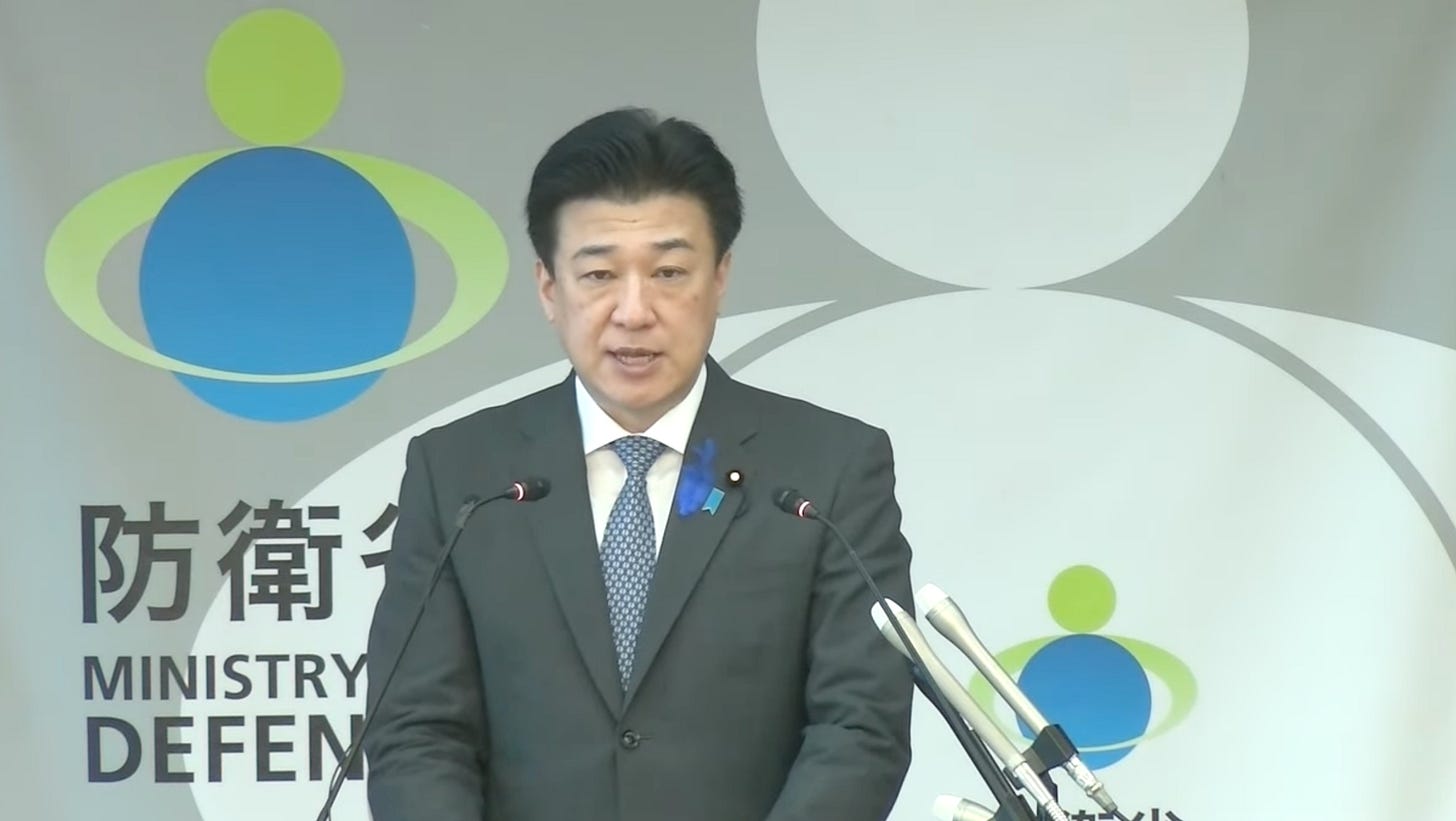Scandal in Ichigaya | This week in Japanese politics
While the prime minister travels, the Defense Ministry uncovers widespread misconduct and the LDP race continues to evolve
Thank you for reading Observing Japan. “This Week in Japanese Politics” is published on Friday or Saturday for paid subscribers. From now until 15 July, annual subscriptions are 20% off.
Paid subscribers are invited to join my first-ever conference call for paid subscribers, scheduled for 16 July at 9:30am ET. Information about how to join is available here.
If you are looking for timely, forward-looking analysis of the stories in Japans’s politics and policymaking that move markets, I have launched a new service through my business, Japan Foresight LLC. For more information about Japan Foresight’s services or for information on how to sign up for a trial or schedule a briefing, please visit our website or reach out to me.
The Ministry of Defense announced it had punished hundreds of civilians and uniformed personnel for misconduct, much of it involving the handling of state secrets. Potential candidates for the Liberal Democratic Party’s (LDP) leadership election continue to maneuver, while the Constitutional Democratic Party (CDP) is still processing the shock of the results of the Tokyo gubernatorial election. Meanwhile, Prime Minister Kishida Fumio was in Washington for the NATO summit and then stopped in Berlin before returning to Japan. His government also may have intervened in foreign exchange markets again to bolster the yen, as the weak exchange rate continues to squeeze household incomes. Plus: Kōmeitō may be changing leaders too.
Politics
The Defense Ministry is grappling with a massive scandal after it was revealed that hundreds of civilian bureaucrats and uniformed Self-Defense Forces (SDF) personnel had committed numerous infractions, including failures to protect state secrets and widespread harassment. Of a total of 220 cases, 113 related to the improper use of designated state secrets. Others were for “power harassment” or being improperly entertained by a defense contractor. Prime Minister Kishida Fumio, speaking to reporters in Washington, apologized for the misconduct. The scandal is particularly damaging for the Kishida government as it seeks higher defense spending – perhaps paid for with tax increases – and also seeks closer ties with allies, which requires shedding Japan’s reputation for poor handling of classified information. Parties across the political spectrum expressed their anger.
The administrative vice minister of defense and the chiefs of staff of the SDF’s three services were punished; Maritime Self-Defense Forces chief of staff Sakai Ryō was to have his pay cut but has announced his resignation. Defense Minister Kihara Minoru has said he will not resign but will return a month of his ministerial salary.
Ōnishi Hideo, a member of the House of Representatives from Tokyo who belonged to the former Abe faction, said following the LDP’s poor performance in Tokyo metropolitan assembly by-elections that Kishida should resign and allow the party to select a new leader in September.
The LDP leadership race continues to take shape, although the party is trying to figure out the timing of the vote in light of plans for the prime minister to attend the UN General Assembly in New York in late September. Ishiba Shigeru is inching closer to entering the race for the LDP’s leadership. He also used a television appearance to voice his respect for former prime minister Suga Yoshihide, despite their differences, highlighting the clout Suga could wield in the upcoming campaign. He told reporters on 12 July that he may make a decision after the Obon in August. He also suggested that with the yen weaker than anticipated, it is necessary to modify the defense spending program announced in late 2022.
Keep reading with a 7-day free trial
Subscribe to Observing Japan to keep reading this post and get 7 days of free access to the full post archives.




